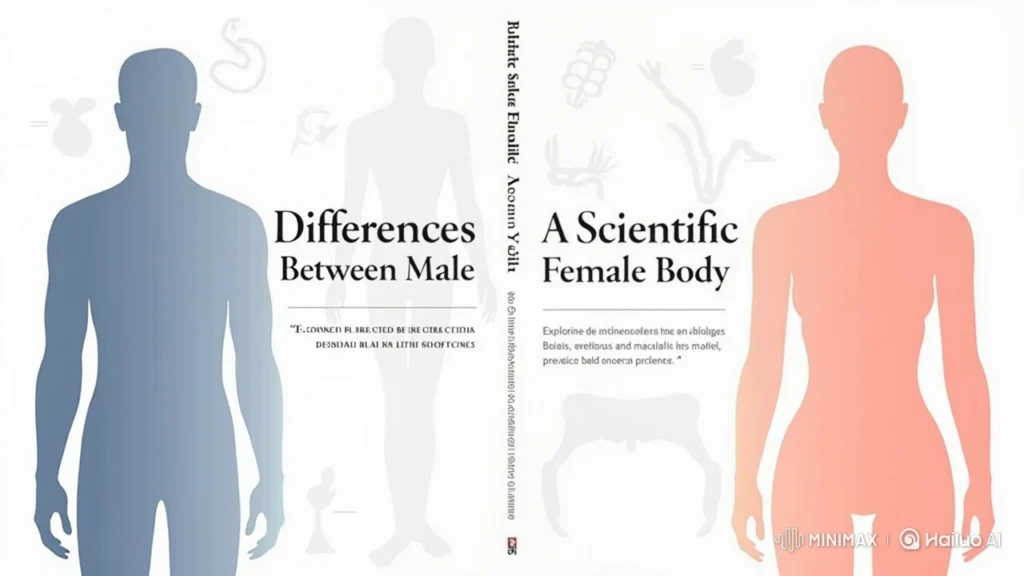In the intricate tapestry of intimate relationships, the allure of prioritizing a partner’s happiness often leads us down a path of self – neglect. We contort our actions, suppress our desires, and become trapped in a cycle of seeking external validation. But this begs the question: Is there a more sustainable approach to love? A way to nurture both our relationships and our own well – being? The answer lies in embracing emotional independence, a concept that has the power to transform the very fabric of our connections.

The Problem with People – Pleasing
At the heart of people – pleasing in intimate relationships lies a psychological conundrum rooted in attachment theory. Many of us, influenced by past experiences or childhood conditioning, develop a fear – based belief system. We internalize the idea that our worth is contingent upon meeting others’ expectations, fearing that any deviation will result in rejection or abandonment. This deep – seated anxiety drives us to engage in self – sacrificing behaviors, believing that by putting our partner’s needs on a pedestal, we can secure their love.
However, this strategy is inherently flawed. Research in relationship psychology has shown that when individuals consistently neglect their own needs, it can lead to a host of negative consequences. Feelings of resentment begin to fester beneath the surface, slowly eroding the trust and intimacy in the relationship. Over time, the people – pleaser may start to feel like a martyr, unappreciated for their efforts, and this can breed a sense of disillusionment and emotional exhaustion.
For example, consider the case of a partner who adores attending high – energy social events, while their significant other is an introvert who thrives in quiet solitude. In an attempt to please their partner, the introvert forces themselves to attend these events week after week. Instead of enjoying the experience, they spend the evenings feeling overwhelmed and out of place. This constant mismatch between their true nature and their actions not only takes a toll on their mental health but also creates tension in the relationship. The introvert may start to withdraw emotionally, while the extroverted partner may be left confused by the sudden change in their behavior.
Moreover, people – pleasing can create a power imbalance in the relationship. When one partner is always catering to the other, it becomes easy for the receiving partner to take their efforts for granted. They may not learn the importance of reciprocity and mutual respect, assuming that their needs will always be met without question. This one – sided dynamic can lead to a breakdown in communication and a lack of emotional intimacy, as both partners struggle to find a healthy balance.

The Benefits of Emotional Independence
Emotional independence in intimate relationships is not about detachment or self – absorption; rather, it’s a delicate dance of maintaining a strong sense of self while also being able to connect deeply with a partner. Drawing from self – determination theory, emotional independence allows individuals to satisfy their basic psychological needs for autonomy, competence, and relatedness within the context of a relationship.

Healthier Relationships
When both partners are emotionally independent, the relationship blossoms into a harmonious partnership. Each person has their own set of interests, passions, and goals that they pursue outside of the relationship. These individual pursuits not only enrich their own lives but also bring new energy and experiences into the relationship. For instance, one partner might be an avid painter, while the other is a passionate runner. When they come together, they can share their creative works and running adventures, fostering a sense of admiration and curiosity for each other’s worlds. This mutual appreciation for individuality strengthens the bond between them, creating a relationship that is based on respect and equality.
Increased Self – Esteem
Taking care of one’s emotional needs is a powerful act of self – love. When we prioritize our own well – being, we send a message to ourselves that we are worthy of love and respect. This shift in mindset has a profound impact on our self – esteem. Instead of seeking validation from others, we learn to validate ourselves. We recognize our own strengths and accomplishments, and we no longer rely on external approval to feel good about ourselves. This newfound self – confidence radiates from within, making us more attractive and magnetic to others. It also allows us to approach relationships from a place of security, rather than a place of neediness.

Better Coping with Conflict
Conflict is an inevitable part of any relationship, but emotionally independent individuals are better equipped to handle it. They understand that conflict is not a threat to the relationship but an opportunity for growth and deeper understanding. By separating their emotions from the issue at hand, they are able to approach conflicts with a rational and calm mindset. They can communicate their needs and boundaries clearly and assertively, without getting defensive or resorting to people – pleasing tactics. This open and honest communication style allows both partners to express their perspectives, find common ground, and work towards a mutually satisfying solution. As a result, conflicts are resolved more effectively, and the relationship becomes stronger in the process.

Steps to Achieve Emotional Independence
Get to Know Yourself
Embarking on a journey of self – discovery is the first step towards emotional independence. This process involves delving deep into your inner world, exploring your thoughts, feelings, and values. One effective way to do this is through the practice of mindfulness. By being present in the moment and observing your thoughts without judgment, you can gain valuable insights into your patterns of thinking and behavior. Journaling is another powerful tool for self – exploration. Writing down your daily experiences, emotions, and reflections can help you identify recurring themes and patterns, as well as your likes, dislikes, and aspirations.
In addition to mindfulness and journaling, engaging in self – reflection exercises can also be beneficial. Ask yourself questions such as: What are my core values? What makes me feel fulfilled and happy? What are my biggest fears and insecurities? By answering these questions honestly, you can gain a clearer understanding of who you are as an individual, which will inform your decisions and actions in your relationship.
Set Boundaries
Establishing healthy boundaries is essential for maintaining emotional independence in a relationship. Boundaries define what is acceptable and unacceptable behavior for you, and they help protect your emotional well – being. Setting boundaries requires clear and assertive communication. Start by identifying your boundaries in different areas of your life, such as your personal space, time, and emotional needs. Then, communicate these boundaries to your partner in a calm and respectful manner.
For example, if you need some alone time every evening to unwind and recharge, let your partner know. Explain why this time is important to you and how it benefits your overall well – being. Be firm but flexible in enforcing your boundaries. If your partner crosses a boundary, gently remind them of your limits and explain how their behavior made you feel. By consistently communicating and enforcing your boundaries, you show your partner that you respect yourself and that you expect them to respect you as well.
Practice Self – Care
Self – care is not a luxury; it’s a necessity for emotional independence. Taking care of your physical, mental, and emotional health is essential for maintaining a healthy relationship. Self – care can take many forms, from getting enough sleep and eating a balanced diet to engaging in activities that bring you joy and relaxation.
Make a conscious effort to incorporate self – care into your daily routine. Set aside time each day for activities that nourish your body and mind, such as exercise, meditation, reading, or taking a long bath. It’s also important to make time for social connections outside of your relationship. Spending time with friends and family can provide a sense of support and belonging, and it can help you maintain a healthy perspective on your relationship.

Build a Support Network Outside the Relationship
Relying solely on your partner for emotional support can put unnecessary pressure on the relationship. Building a support network outside of your relationship is crucial for emotional independence. This network can include friends, family, colleagues, or a therapist. Having a diverse group of people to turn to when you’re feeling stressed, overwhelmed, or in need of advice can provide you with different perspectives and a sense of community.
To build a support network, start by reaching out to people you trust and feel comfortable with. Join clubs, groups, or organizations based on your interests and hobbies. This is a great way to meet new people who share your passions and values. Attend social events, workshops, or conferences to expand your social circle. Remember, building a support network takes time and effort, but the benefits are well worth it.
Learn to Say No
Saying no is one of the most important skills for emotionally independent people. It’s easy to fall into the trap of saying yes to everything, especially when we’re trying to please others. However, overcommitting ourselves can lead to feelings of stress, overwhelm, and resentment. Learning to say no requires courage and self – awareness.
When faced with a request, take a moment to consider your own needs and priorities. Ask yourself if saying yes is in alignment with your values and goals. If it’s not, have the courage to say no. Be polite but firm in your response, and explain your reasons if necessary. Remember, saying no is not selfish; it’s an act of self – preservation. By setting limits and saying no when necessary, you protect your time, energy, and emotional well – being.
Case Studies
Sarah and John
Sarah’s journey from people – pleaser to emotionally independent woman is a testament to the power of self – awareness and personal growth. For years, Sarah had been sacrificing her own needs and desires to make John happy. She would agree to go to parties, movies, and events that she had no interest in, all in the name of love. But beneath the surface, Sarah was struggling. She felt unfulfilled, resentful, and lost.
One day, Sarah had an epiphany. She realized that she had been so focused on making John happy that she had forgotten to take care of herself. She decided to make a change. She started by joining a yoga class, something she had always been interested in but had never made time for. Through yoga, Sarah learned to connect with her body and mind, and she discovered a new sense of inner peace and strength.
As Sarah became more in tune with herself, she also started to communicate her needs and boundaries to John. At first, John was a bit taken aback. He was used to Sarah always saying yes, and he didn’t understand why she was suddenly changing. But Sarah was patient and persistent. She explained to John how she was feeling and why it was important for her to have some alone time and pursue her own interests.
Over time, John began to understand and respect Sarah’s boundaries. He saw the positive impact that self – care was having on her, and he started to support her in her journey. Sarah and John’s relationship became stronger than ever, as they learned to balance their individual needs with their love for each other.
Mike and Emily
Mike’s story is another example of how emotional independence can transform a relationship. Mike had always been very dependent on Emily for his emotional well – being. He would constantly seek her approval and validation, and he felt lost and insecure whenever she wasn’t around. Emily, on the other hand, was starting to feel suffocated by Mike’s neediness. She loved him, but she needed some space and independence of her own.
Realizing that their relationship was in trouble, Mike and Emily decided to seek professional help. Through therapy, Mike learned about the concept of emotional independence and how it could benefit both him and their relationship. He started to work on building his own support network, joining a men’s group where he could talk about his feelings and experiences with other men.
In addition to building a support network, Mike also started to practice self – care. He took up running, which not only helped him stay physically fit but also provided a great outlet for his stress and emotions. As Mike became more emotionally independent, he also learned to say no to Emily when he didn’t want to do something. This was a difficult but necessary step for him, as it helped him assert his own needs and boundaries.
Slowly but surely, Mike and Emily’s relationship began to heal. Emily was relieved to see Mike taking care of himself and becoming more independent. She felt more attracted to him, and their relationship became more balanced and fulfilling. Mike, too, felt a sense of pride and accomplishment in his new – found independence. He realized that by loving and taking care of himself, he was able to love Emily more deeply and authentically.

In conclusion, the journey from people – pleasing to self – pleasing and achieving emotional independence in intimate relationships is a complex but rewarding one. It requires self – awareness, courage, and a commitment to personal growth. By understanding the pitfalls of people – pleasing, embracing the benefits of emotional independence, and taking the necessary steps to cultivate it, we can create relationships that are based on mutual respect, trust, and love. Remember, you are worthy of love and happiness, and the first step towards achieving that is learning to love and take care of yourself.
